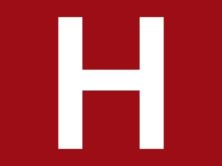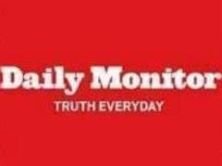
Lecturers from the University of Malawi's Dept. of Journalism and Media Studies contributed to a new Malawi journalism ethics snd history book. (Credit: Poly.ac.mw, screenshot)
A new book focusing on journalism standards in Malawi was published by the University of Malawi’s journalism and media studies department with funding from UNESCO, Biz Community.com reported.
It covers issues like “development and management” of the news industry, media ethics, Malawi’s media history, and media standards, according to BizCommunity.
According to BizCommunity, “It is expected that the book will stop journalism students and scholars from depending on international publications with contents that do not apply to Malawi.”
The book, Journalism Practice in Malawi: History, Progress and Prospects, was created by “nine journalism lecturers from” the University of Malawi and “an official from UNESCO.” One of those lecturers, Levi Manda, worked on the fourth chapter of the book, which focused on “the concept of human and social development” and “links between media practice and development,” BizCommunity reported. Manda explained to iMediaEthics that “this is my area of interest.”
He noted that “Currently many scholars tend to dismiss development as archaic and rather interventionist. However, media have a role to play in political change (eg Facebook and twitter in Arab spring), health, agriculture, etc. This is the more imperative in a country where the majority are still illiterate in English, cannot afford newspapers, don’t watch TV because they don’t have it or cannot power their sets, etc. Defining development is also very important for students to understand the multifaceted nature of development (infrastructure, cultural values, religion, education, etc).”
The head of the Journalism and Media Studies department at the university, Maclan Kanyang’wa, told iMediaEthics by e-mail that big ethical issues in Malawi include “questions of disclosure of sources, issues of privacy versus public right to know, coverage of conflict and violence (recent demonstrations on 20 July for example in which 20 people lost their lives), minority rights, child rights, objectivity, fairness and balance.”
We asked Kondowe what the biggest ethical issues in Malawi are and what Malawi-specific issues the book addressed. He told iMediaEthics by e-mail that some Malawi-specific issues include the development of print journalism, regulation of broadcast journalism, and “how the issues of media markets and commodification of news apply to Malawi.” According to Kondowe, Malawi’s biggest media ethics issues “relate to partisan coverage by especially the public broadcasters and to some extent the public print media and privately owned broadcasters. It is an area where professionalism is lacking.”
Manda told iMediaEthics that he “was commissioned by the department Journalism and Media Studies” to work on the book. According to Manda, the department’s head “allocated chapters” to be written by the various faculty. The head of the Journalism and Media Studies department at the university, Maclan Kanyang’wa, told iMediaEthics by e-mail that the university was responsible for “development of the proposed book chapters, research and authorship.”
UNESCO’s Malawi National Commission acting deputy executive secretary Emmanuel Kondowe explained to iMediaEthics by e-mail its involvement with the book:
“Outside of funding there was no involvement of UNESCO as such but there was involvement of the Malawi National Commission for UNESCO. You might wish to know that UNESCOs’ Constitution calls upon its Member States to establish National Commissions which act as links between UNESCO, its Member States and stakeholders in a country. In that respect, following consultations with the Malawi Polytechnic, we came up with a proposal to publish a book to support the Journalism Degree Programme. The choice of the content of title of chapters and contents of those chapters was decided by the Department of Journalism and Media Studies of the Malawi Polytechnic who also identified the authors.”
We asked Kondowe who prompted the book – UNESCO or the journalism program. Kondowe said that the book “was a collaboration between the Malawi National Commission for UNESCO and the Journalism Degree Programme. The first idea (muted by some lecturers at the Polytechnic) was for a book on the history of journalism in Malawi. Collaboratively this was refined as it was considered limiting.”
he book can be purchased for about $25-30 from the UNESCO Malawi office, according to Manda who noted that “copies are limited.” According to the head of the Journalism and Media Studies department at the university, Maclan Kanyang’wa, the university’s “average journalism class has 33 students, hence graduating students in the range of 30-35.”
UPDATE: 3/6/2012 9:55 AM EST: Added in responses from head of journalism department and UNESCO’s Malawi National Commission.







Comments Terms and Conditions